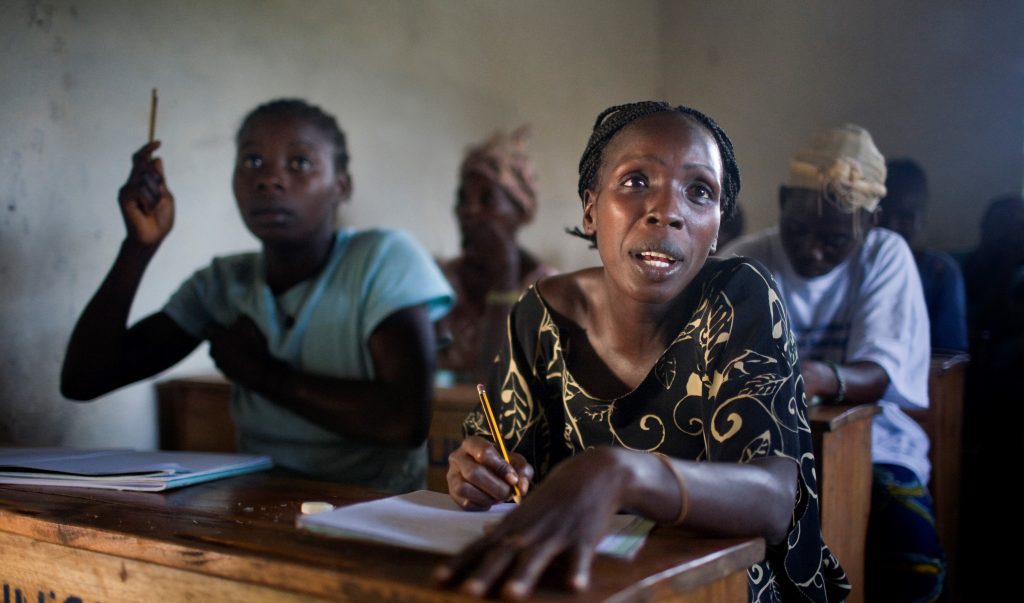While everyone agrees that adult education has major social, economic and civic benefits, it remains a marginal concern for policy-makers. How, asks Sir Alan Tuckett, can we convince governments to make policies that live up to their commitments?

Adult learning and education makes a difference. It enhances people’s dignity and strengthens civil society. It supports the development of skills for the world of today’s work and the capacity to address the challenges of rapid technological, industrial, ecological demographic change. It fosters inter-generational learning, and enriches learners’ engagement with arts, respect for diversity and difference. Studies show its positive health impact, its contribution to the resettlement of offenders, and the way it enriches later lives. Most importantly adult learning and education gives a voice to people too often silenced in the debates that shape our future. In the words of Rethinking Education, adult learning and education fosters the common good.
All this is endorsed by international conference after international conference. The International Labour Office calls for universal lifelong learning; the World Economic Forum argues that lifelong learning is of key importance in responding to the development of robotics, artificial intelligence and the Fourth Industrial Revolution. The Programme for the International Assessment of Adult Competencies (PIAAC) surveys of adult skills, administered by the Organisation for Economic Cooperation and Development (OECD), are modified to recognise the breadth of learning relevant to twenty-first century work. Governments sign up to major commitments to improve literacy, to secure the right to education for women as well as girls, and to no one being left behind.
Why, then, is ALE so marginal? First, to use an old English aphorism, ‘warm words butter no parsnips’. Without money and political will, agreements stay on the page. Look at the commitments made in Dakar in 2000 – of the six goals agreed, the 2015 Global Monitoring Report made clear least progress by far was made on adult literacy. And the wider adult learning goal was not even measured. In the same way, the Global Partnership for Education is charged with co-ordinating finance for Sustainable Development Goal (SDG) 4, but its chair told the International Council for Adult Education (ICAE) there was no money for literacy – if we wanted it, civil society would have to raise it itself.
These views don’t develop accidentally. Most education funding focuses on schools and universities. When decision makers do look at adult learning and education they find it hard to see what difference investment can make in a context where outcomes are regularly measured. And measurement matters. It is harder to capture a growth in community confidence and resilience than it is to measure whether someone passed a test. With the growth of neo-liberal policies among development partners, as well as governments, there has been a marked shift away from broad capacity-building in favour of short project-based and measureable activity.
But that is no reason to give up. Look at the SDGs. Hardly any can be achieved without adults learning. It is a message ICAE makes in the UN High Level Policy Forum. It is also central to UNESCO’s view. We need to make sure that it is one we make together at the next International Conference on Adult Education (CONFINTEA) in Marrakech in 2022. The formal structures for preparing for CONFINTEA VII start this year with country reports, followed in 2021 with regional conferences. At the main event, ICAE will work to host a civil society event ahead of the formal conference. Meanwhile, working locally to identify priorities for the 2020s, working to influence government reports, getting places on national delegations, and engaging with ICAE in making a global case, in which learner voices take a prominent role, are key tasks.
But how do we make a global difference with our advocacy? Good evidence helps: numbers, qualitative studies, illustrated with powerful stories, involving people whose lives have been transformed through learning. Mobilizing learners for public events, organized with imagination and flair. Stickability – keeping at it over the long haul, making alliances with friendly media, developing the intelligent use of social media – all matter. Taking great pictures. Making partnerships with sympathetic organizations. Briefing politicians, drafting policy responses, and sharing what works with one another – what is needed is what the World Social Forum calls for, the belief that another world is possible, and that together we can make it. After all, governments already agree that adult learning and education matters. We just need to convince them to match grand agreements with practical policies and sustained funding on the ground.
Sir Alan Tuckett is Professor of Education at the University of Wolverhampton and a former President of the International Council of Adult Education (2011–2015). He was Director of the National Institute of Adult Continuing Education (NIACE) between 1988 and 2011. He is a UIL Honorary Fellow.
